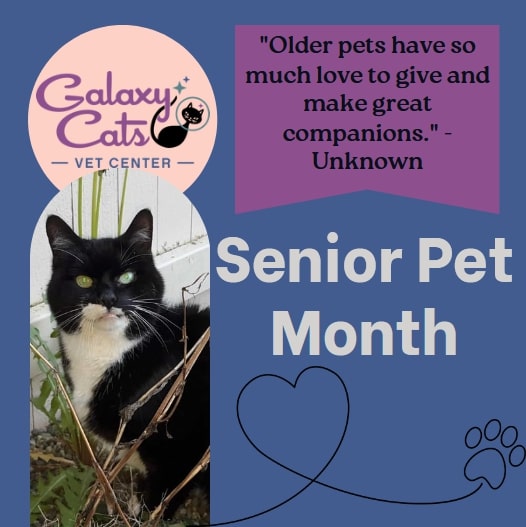Determining Seniority:
Common Health Issues:
Periodontal Disease, Dental health becomes a significant concern for senior cats. Regular dental checkups with your vet can prevent issues like tooth loss and the development of tumors in the mouth and throat.
Arthritis and Joint Pain, 40% of cats show signs of arthritis, and 90% of cats over the age of 12 have signs of arthritis. X-rays and physical examinations can help identify these issues. Providing ramps or steps can ease their movement, engaging in gentle play helps maintain muscle and joint strength, and appropriate supplements and medication can help alleviate pain and help keep your cat comfortable.
Litter Box Issues, Older cats may face litter box challenges due to dehydration, common in cats on a dry food diet. Soft litter and lower-sided boxes can be more accessible. Increased water intake, possibly through wet food, can alleviate urinary problems.
Common metabolic disorders, Many older cats may begin to lose weight due to common feline conditions like diabetes, thyroid disorders, kidney disease, or changing nutritional needs. Regular exams will help detect these problems early and ensure a longer, happier life.
We know you love your kitty co-pilot, here are some tips in supporting Your Senior Cat:
Regular Vet Visits, Collaborate with your vet to create a quality-of-life plan, addressing pain management and overall well-being. Frequent check-ups become more critical as your cat ages.
Adapted Home Environment, Make your home senior-cat-friendly with accommodations such as ramps or steps to favorite spots. Ensuring easy access to the litter box and providing a comfortable and warm environment can significantly impact your cat’s well-being.
Dietary Considerations, Switching to wet food can increase moisture intake, promoting kidney health. Monitor weight and adjust the diet as needed, considering your cat’s age and health conditions.
As our feline companions age, our understanding of their needs grows, allowing us to provide better care and companionship. While witnessing our pets’ age can be emotional, knowing that we are actively supporting their health and happiness adds immeasurable value to the time we share with them. Cherish every moment with your senior kitty, and rest assured that your care plays a crucial role in ensuring their golden years are filled with love and comfort.

